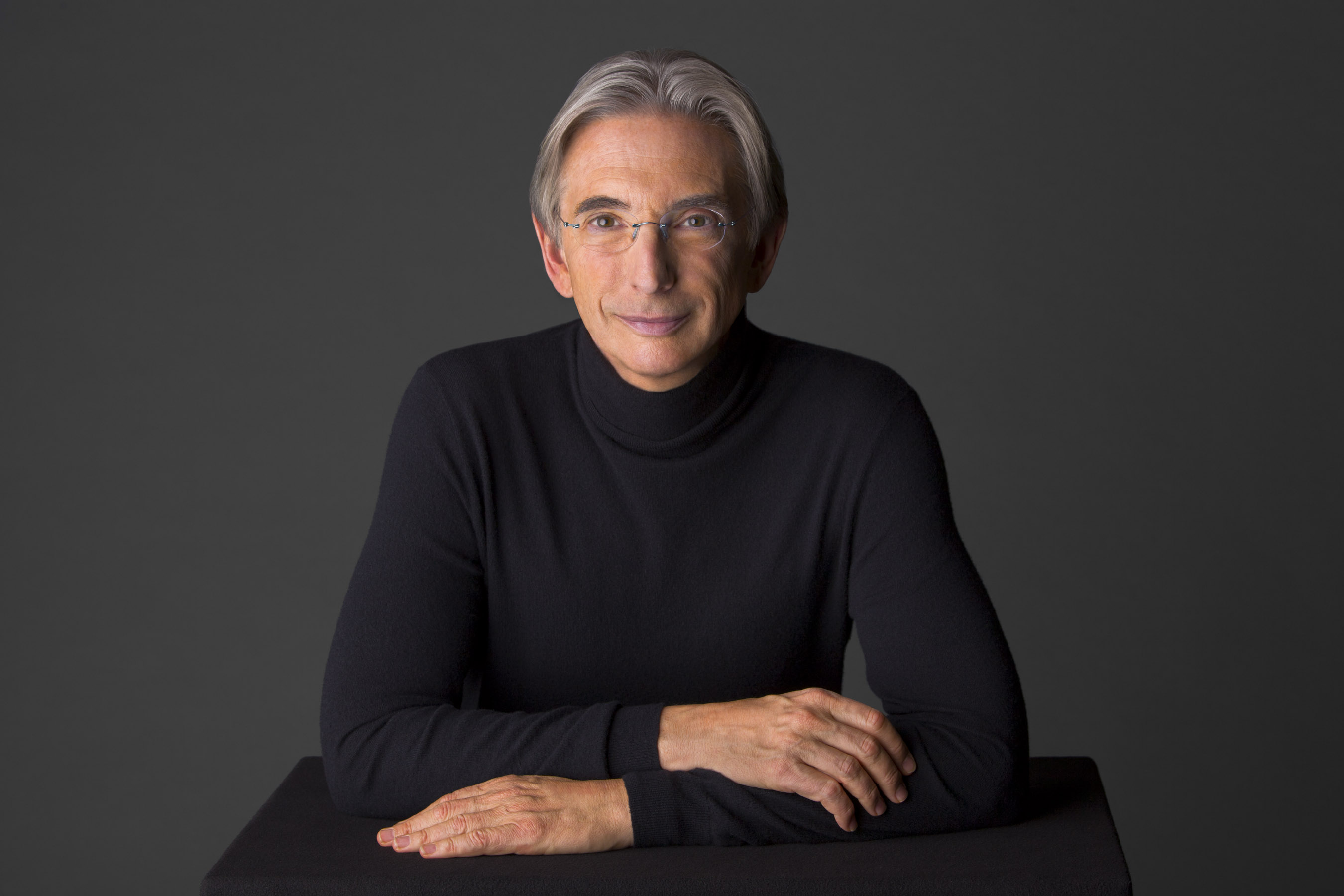
New World Symphony presents a rare Miami performance of Mahler’s ‘Song of the Earth’

Michael Tilson Thomas, co-founder and artistic director of the New World Symphony.
It is not often that Gustav Mahler’s “Das Lied von der Erde” (“The Song of the Earth”) makes a stop in Miami. In 1990, in the times of the Lincoln Theatre, Michael Tilson Thomas conducted his recently formed New World Symphony in performances featuring Dolora Zajick and Gary Lakes. In 2001, James Judd and the Florida Philharmonic performed an unforgettable version with Janis Taylor and Clifton Forbis. Just last year, the work returned with the University of Miami Orchestra, conducted by Thomas Sleeper, and in Schoenberg/Riehn’s exquisite adaptation performed by Seraphic Fire with Susanne Mentzer and Bryan Hymel. At the tail end of the current season, Mahler’s vocal symphony returns, conducted by Michael Tilson Thomas, who, in this way, practically completes his Mahler cycle with the New World Symphony. (Only the Eighth Symphony is missing, and such a monumental piece won’t likely be performed in Miami anytime soon.) It will be interesting to hear Tilson Thomas conduct the work again, 25 years later, with the support of two star soloists: the Wagnerian tenor from New Zealand Simon O’Neill, who sang “Lohengrin” and “Parsifal” at the Bayreuth Festival, and the rising young mezzo Sasha Cooke. On a personal note, “Das Lied” has affected me deeply since I first heard it in Otto Klemperer’s version, with Christa Ludwig and Fritz Wunderlich, and later in the iconic performances of Leonard Bernstein (with James King and Dietrich Fischer-Dieskau) and Christa Ludwig with Rene Kollo. Its six tableaux, based on ancient Chinese poems, have been a continuous source of inspiration. They prompted me to devote to them my most recent series of works, which coincided with Seraphic Fire’s performances last season. The point is important because it is impossible for me to be impartial toward a masterpiece that I venerate, as it is impossible for me to fail to express my ethusiasm for the performances the New World Symphony has scheduled. The young orchestra is putting itself to the test with this work of the great composer, who never heard it performed. Six months after Mahler’s death, his champion, Bruno Walter, premiered it on Nov. 20, 1911. When he composed the piece, Mahler had not yet turned 50 and was facing a devastating crisis. He had quit his job as conductor of the Vienna Opera, his daughter had died of diphtheria, and he had been diagnosed with the heart disease that would kill him the following year–not to mention the drama of his wife falling in love with the architect Walter Gropius. Literally drunk on the job, he sought solace in composing. He selected seven of the 40 ancient–essentially Taoist–poems from the collection “The Chinese Flute,” which had been translated and adapted into German by Hans Bethge. He worked feverishly thoughout the summer of 1908 on what he called “a symphony for tenor and contralto (or baritone).” The title of each song suggests its musical beauty: “The Drinking Song of the Earth’s Sorrow” (the series’ original title), “The Solitary One in Autumn” (comfort for an exhausted heart), “On Youth,” “On Beauty,” “The Drunkard in Spring” (the symphony’s scherzo), and the wonderful “The Farewell,” which combines the poems “Waiting for a Friend” and “Farewell to a Friend,” to end with the image of a world flowering in blue and the repetition of the word ‘eternally’ seven prophetic times as the music fades. “The Song of the Earth” is virtually a manifesto of Mahler’s soul. In it he brings together his two great loves, the human voice and the symphony, in a union as unique as it is original, that also unites East and West. It is his farewell to the planet and his torch of hope that “if the world is naught but a dream, why so much hardship and suffering?” That in the face of despair we have no choice but to accept and to see ourselves in nature, contemplating its unyielding stubbornness as it repeats the cycle of life and death again and again. Toward the end, that Mahlerian grief becomes unexpected hope and returns to the roots of his Third Symphony, “only because a smile is a little bigger than sorrow.”
The New World Symphony will present “The Song of the Earth” on April 23 and 24.
Recent Content
-
Artsarticle ·
-
Artsarticle ·
-
Artsarticle ·
